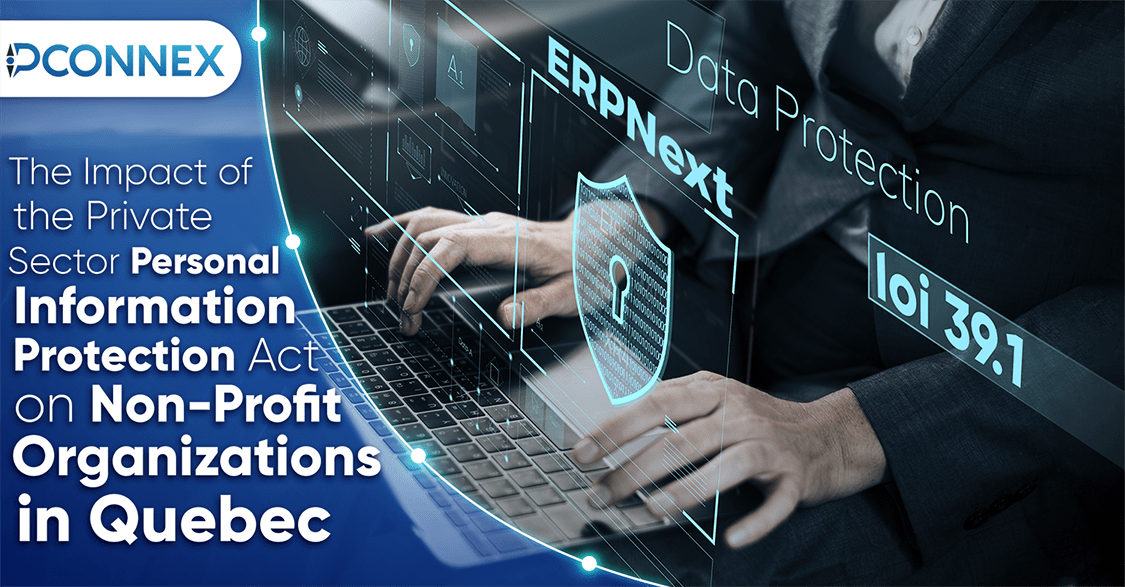
Introduction:
The Private Sector Personal Information Protection Act in Quebec poses specific challenges and opportunities for Non-Profit Organizations (NPOs). This article explores how NPOs can navigate the regulatory landscape positively, strengthening trust among donors, volunteers, and stakeholders.
1- Data Responsibility:
NPOs frequently access donors’ and members’ personal data. Appointing a personal information protection officer presents an opportunity to bolster data responsibility. Proactive measures to safeguard this information underscore NPOs’ commitment to privacy.
2- Donor Trust:
Building trust with donors is paramount. Responsible data collection and ensuring confidentiality foster donor trust. NPOs that elucidate data usage, obtain clear consent, and protect data are more likely to nurture enduring relationships.
3- Transparency:
The legislation advocates for transparency in data management. NPOs can seize this opportunity to articulate how they collect, use, and safeguard personal information. Transparency enhances trust, assuring donors that their data is handled responsibly.
4- Privacy Incident Management:
NPOs must be prepared for privacy incidents. Establishing incident response plans and transparent communication during data breaches minimizes the impact on the organization’s reputation. Responsible handling of such situations is crucial.
5- Competitive Advantages:
Investing in data protection positions NPOs as responsible and trustworthy entities. This distinction can attract more privacy-conscious donors and volunteers, providing a competitive advantage in the sector.
6- Legal Risks:
Non-compliance with the law exposes NPOs to legal risks. Administrative fines and penalties for violations in personal information handling can negatively impact an organization’s finances. Adhering to regulations is crucial to mitigate legal risks.
Conclusion :
In conclusion, the Private Sector Personal Information Protection Act in Quebec brings both challenges and opportunities for Non-Profit Organizations. Proactively protecting personal data not only enhances donor trust but also differentiates NPOs from their peers. By minimizing legal risks through compliance, NPOs can solidify their reputation and foster stronger relationships with stakeholders. As data privacy becomes increasingly important, responsible handling of information is a cornerstone for NPOs to thrive in the evolving landscape.
